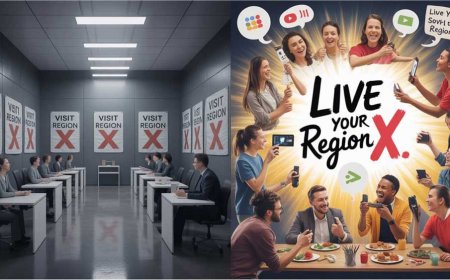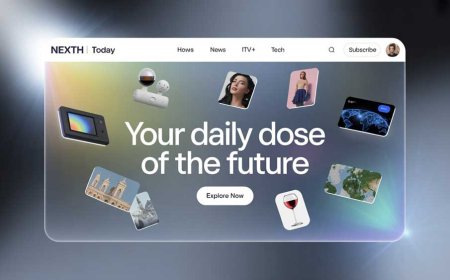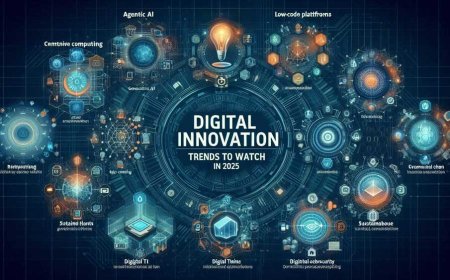Sharism and LCMs: Rethinking Artificial Intelligence Through the Lens of Shared Meaning
Large Concept Models (LCMs) go beyond LLMs by reasoning with concepts, enabling deeper understanding, logic, and multilingual capabilities in AI. While Large Language Models focus on words, Large Concept Models (LCMs) represent a paradigm shift—reasoning over concepts to unlock deeper AI understanding, logic, and multimodal intelligence. Discover how LCMs redefine the future of artificial intelligence.

In an era where the frontiers of artificial intelligence evolve rapidly and often in unpredictable directions, the intersection between technology and human values becomes not just relevant—but essential. One such point of convergence lies between Sharism, a socio-cultural philosophy of sharing, and the emerging paradigm of Large Concept Models (LCMs), a novel generation of AI systems. This article explores how these two dimensions can combine to reshape the digital and cognitive architectures of the future.
From Information Hoarding to Shared Intelligence
Historically, the digital age has been marked by a tension between openness and control, collaboration and monopolization. The internet began as a utopian space for shared knowledge—embodied in open-source software, forums, wikis, and Creative Commons licensing. However, in recent years, we’ve witnessed an increasing centralization of information, power, and platforms, especially in the realm of artificial intelligence.
This is where Sharism comes in as a counter-current. Defined by its emphasis on voluntary sharing of knowledge, ideas, tools, and experiences, Sharism promotes the view that collective value is amplified—not diminished—when knowledge circulates freely. It encourages peer-to-peer collaboration, transparency, and inclusive participation in cultural and economic systems.
But how can this philosophical stance connect with the world of advanced AI systems?
The Rise of Large Concept Models (LCMs)
Traditional Large Language Models (LLMs), such as ChatGPT or Gemini, operate through probabilistic text generation. While they are powerful at mimicking language patterns, they often lack deep semantic understanding and operate more as "autocomplete on steroids" than true reasoning engines.
By contrast, Large Concept Models represent a next step in AI evolution. Rather than focusing on words and syntax, they reason through conceptual structures, building meaning across languages, cultures, and disciplines. This allows for explainable, logic-driven inferences, and opens new frontiers for cross-domain knowledge integration.
If LLMs are like encyclopedias that respond quickly, LCMs are more like living minds that understand the logic of the encyclopedia itself—and can reorganize it, question it, or build upon it.
Sharism and LCMs: A Philosophical and Practical Synergy
The alliance between Sharism and LCMs is not only possible—it’s necessary. Here’s why:
1. Shared Semantics Instead of Proprietary Black Boxes
The Sharist ethic calls for open ontologies, accessible knowledge graphs, and transparent reasoning systems. LCMs built in line with these principles could leverage shared conceptual maps (like multilingual cultural databases) to create AI systems grounded in collective, rather than corporate, intelligence.
Such models would not only be open in their data sources but also explainable in their decisions, a fundamental aspect of ethical AI.
2. Multilingual and Multicultural Intelligence
Sharism thrives on diversity—not just of resources, but of perspectives. An LCM that can navigate and mediate between conceptual frameworks across languages and cultures could become an engine of global dialogue, understanding, and innovation.
In this sense, Sharism finds in LCMs the ideal technological partner to translate plurality into coherence, rather than uniformity.
3. AI for Decentralized Empowerment
Most current AI models are centralized, commodified, and extractive. They harvest data from users without consent, and the economic value generated rarely returns to the communities that fuel them.
A Sharist approach to LCM development would flip this logic. By anchoring LCMs in participatory governance models, we can build decentralized cognitive infrastructures that serve local needs, respect data ownership, and foster cooperative innovation.
Real-World Applications: Where the Synergy Begins
Let’s imagine the practical outcomes of this synergy:
- Education: Instead of relying on standardized, globalized curricula, schools could use LCMs trained on localized, open educational resources, adapted to different cultures and learning styles.
- Research & Innovation: Scientific communities could build open concept graphs that accelerate collaborative breakthroughs across disciplines—no longer dependent on proprietary platforms.
- Civic Engagement: Public institutions could deploy LCM-powered assistants to support citizens in understanding policies, proposing alternatives, or even co-creating participatory budgets.
- Circular Economy: Supply chains and sustainability models could be orchestrated through LCMs that match local needs with available resources in real time, creating dynamic ecosystems of mutual benefit.
- Art & Culture: Artists and curators could collaborate with LCMs that understand not just the style of a painting or melody, but the cultural meaning and intent behind it—creating new hybrid forms of expression.
A Sharist LCM is Possible
What would a truly Sharist LCM look like?
- It would be trained on ethically sourced, open data—enriched by communities, not scraped from them.
- It would understand relational knowledge, prioritizing context over correlation.
- It would be governed through cooperative models, such as data trusts, digital commons, or DAOs.
- It would foster a new form of “augmented collective intelligence,” where AI helps amplify—not replace—human collaboration and creativity.
Reclaiming the AI Imagination
Too often, conversations about AI are reduced to either technological determinism or catastrophic fears. But between the hype and the doom lies a more hopeful path: one where technology is designed with, by, and for people.
The convergence of Sharism and LCMs points to a future where AI becomes a tool for unlocking shared meaning, nurturing diverse knowledge systems, and reclaiming our collective ability to imagine and act.
Not artificial intelligence, but augmented shared intelligence. Not cognitive monopolies, but distributed conceptual sovereignty.
If the 20th century was the century of mass media and mass production, and the early 21st is the age of platforms and big data, perhaps the coming decades will be defined by shared cognition—powered by Sharist principles and LCM technologies.
Let’s start building it.
What's Your Reaction?


































